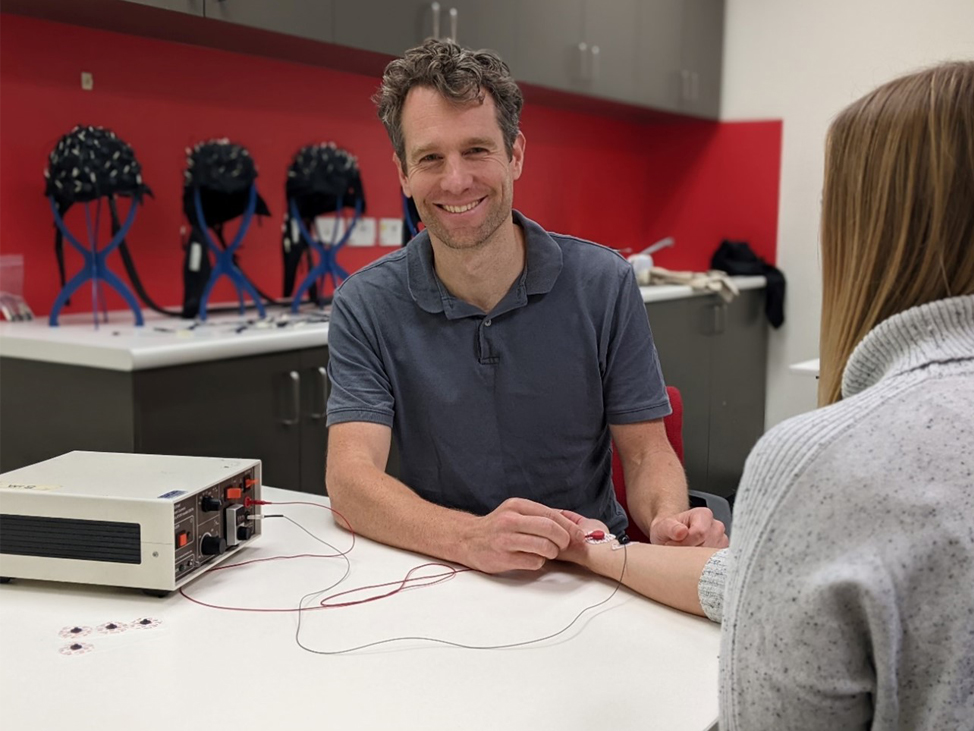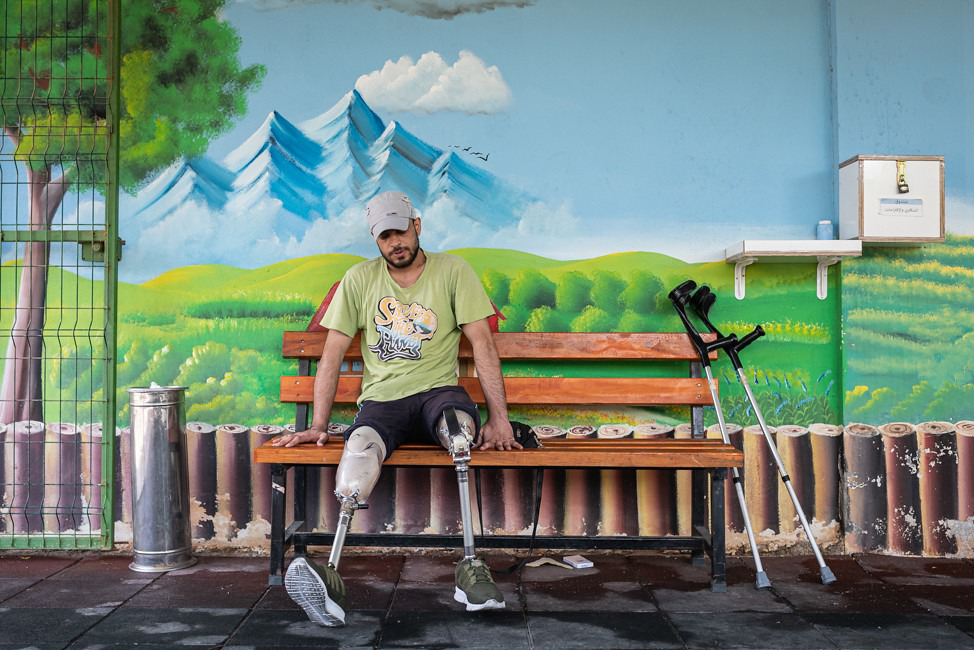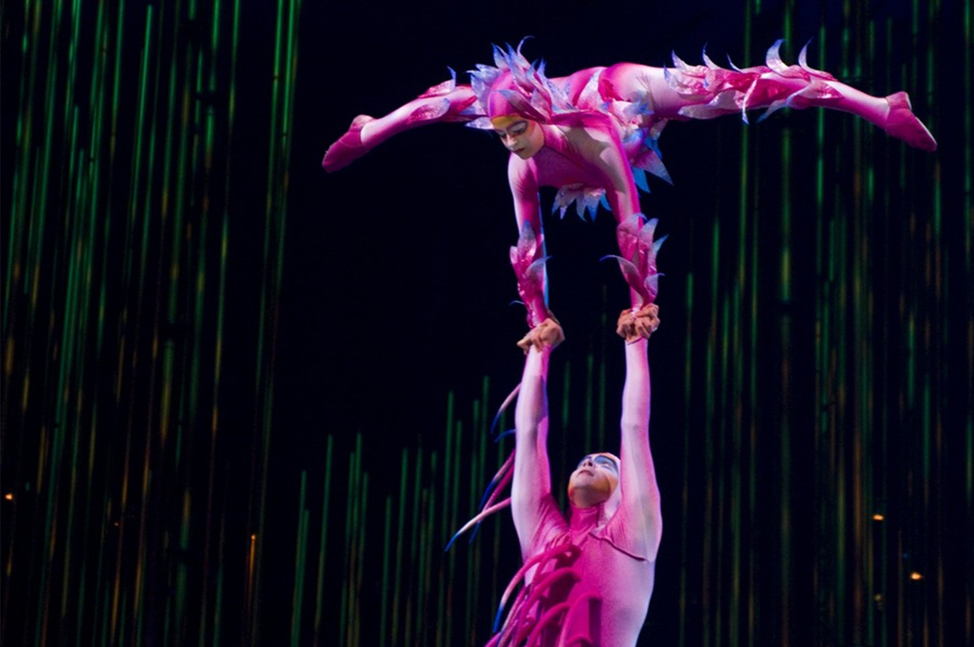- connecting our global alumni network
31 May 2022
The Brain Injury Researcher who Joined a Legendary Travelling Circus

Michael Henry
PhD Candidate and Gould Experimental Science Grant recipient
Physiotherapist
As a physiotherapist for Cirque du Soleil, a national cricket team and professional rugby team, and an international aid worker assisting refugees, Michael Henry has seen his fair share of head injuries.
He is now applying his skills and expertise to researching the long-term effects of concussion, to find out why some people recover quickly, while others live with ongoing debilitating symptoms such as headaches, vision problems, and fatigue.
The current lack of evidence on concussion means healthcare providers and sporting bodies often recommend mandatory rest time. These decisions can be criticised both for being too conservative, or not protective enough, and can have significant impact on professional athletes.
The fear of concussion is also deterring some families and children from participating in community sport, meaning they risk missing out on the health and social benefits.
“Fundamentally people have a right to informed choice when it comes to their healthcare. We still know so little about concussion and the risks, so people don’t have that choice,” Michael says.
Michael is a third year PhD candidate at UniSA and the 2022 recipient of the Gould Experimental Science Grant. Established through a generous gift from former UniSA Chancellor Dr Ian Gould, the grant provides funding for research students to undertake ‘hands on’ experiments.
Michael has designed and is currently recruiting participants for an experiment using Virtual Reality to study how different people – those with acute concussion, those with persisting symptoms following a concussion, and those who have not had concussion – respond to avoid head injury.
“We can’t physically throw objects at people, so the technology will allow us to look at how these three groups of people move to protect their head when they see an object flying towards them.”
He believes these responses can help to reveal how the brain assesses and responds to threat, which may impact how well patients recover. It is hoped the knowledge gained will contribute to better informed clinical treatment strategies and improved outcomes for concussion sufferers.
Michael is working with world-renowned pain researcher Professor Lorimer Moseley AO. The pair first connected nearly 20 years ago when Michael was an Honours student in Queensland.
Under Professor Moseley’s supervision, Michael achieved 1st Class Honours in his Bachelor of Physiotherapy degree.
As an unassuming new graduate, Michael had a desire to travel and experience different cultures. This wanderlust led him to carve out an inspiring career and use his skills to help people in need.
Like many young Australians with global ambitions, Michael embarked on a working holiday in the UK, gaining valuable experience working with sports teams, police, and military rehabilitation.
Then came an opportunity to join the Bangladesh National Cricket Team as the team physiotherapist. In a country where cricket is revered, his position helped bridge cultural differences.
In 2012 Michael responded to the escalating crisis in Syria, joining a humanitarian mission with Médecins du Monde to help Syrian refugees in Turkey.

He was there on a capacity building mission, sharing his skills and knowledge with local healthcare workers, and providing direct medical assistance to people fleeing the conflict across the border.
Michael saw many devastating injuries and trauma caused by explosions and ordnance, including acquired brain injuries, spinal cord injuries and amputations.
“People just had to flee. They didn’t have access to wheelchairs or other support which exacerbated their injuries.”
The World Health Organisation recommends greater allied health involvement in humanitarian disaster responses – early intervention leads to better outcomes for people who have already suffered so much – a cause which Michael is passionate about.
Michael jumped at the chance to join Cirque du Soleil as a Head Therapist, touring with the performers around North and South America, Australasia, Asia, and Europe.

He enjoyed mixing with the diverse circus troupe – many of the artists grew up in traditional circus families, while others came to the company as former elite athletes or gymnasts.
With the circus performing up to 10 shows per week and the artists already at the top of their game, his job was to help maintain their elite level.
In some ways, when a performer was injured it was easier to manage than injuries in rugby or cricket players, due to the highly choreographed nature of the circus, whereas game time is unpredictable.
However, there was no textbook to teach him how to rehabilitate people for the unique physical circus acts – he learnt a lot on the job and worked in partnership with the performers.
“Everywhere I have worked has been a learning curve – that’s one of the joys for me,” Michael says.
After years honing his skills and gaining incredible life experience, the lure of working with his former Honours supervisor convinced him to shift his priorities and pursue a career in research.
While more humanitarian work is on the cards in the future – he is registered with the Australian Government and British emergency disaster response units – for now he is fully committed to completing his PhD and seeing where the research takes him next.
For information on eligibility and how to participate in the concussion experiment contact Michael Henry michael.henry@mymail.unisa.edu.au



